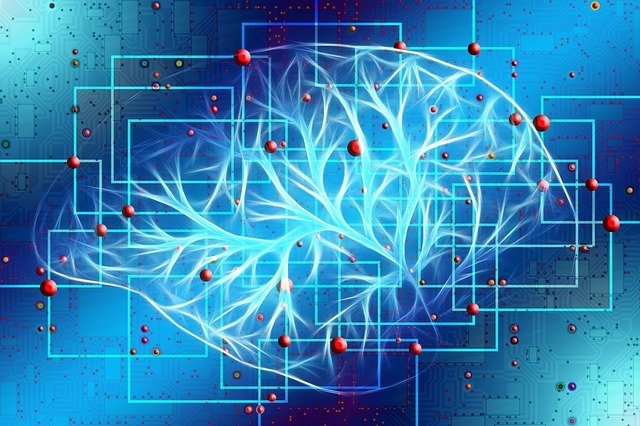Reading statistics show that the lack of reading is linked to crime and even poverty. Considering this, plus the idea that successful people are regular book readers, leads you to question, “Could reading make me smarter?” Read on as we explore the answers to this question with science-backed facts, behavioral research, and even my own experiences.
Does Reading Increase Intelligence? Does It Make You Smarter?
According to the Cambridge Dictionary, the word smart can mean “intelligent or able to think quickly or intelligently in difficult situations.” While intelligence has long been known to be measured in IQ (Intelligence Quotient), researchers discovered there are other ways that one can be intelligent without the evidence shown in common IQ tests.
When it comes to reading, there are two primary types of intelligence that are boosted.

They include:
- Crystallized intelligence: This is the compiled amount of information stored in the brain. It’s associated with general knowledge of numerous facts, vocabulary, and all kinds of data – in other words, “book smarts.” The more you read, the more information you gather, and the more you boost this kind of intelligence.
- Practical intelligence: This the accumulation of skills through knowledge and experience which leads to their application in problem-solving. A practically intelligent person has high common sense and is emotionally intelligent as well, even if they can’t come up with new novel ideas. Most people in leadership roles amass this kind of intelligence with books.
While these types of intelligence impact each other in different ways, it’s evident that reading boosts intelligence, and as a result, makes you smarter.
How Does Reading Make You Smarter? Benefits of Reading
So how does reading make you smarter? The various ways reading makes you smarter are described below.
Boosts brain connectivity

A study led by neuroscientist Gregory Berns revealed that reading boosts brain connectivity. This is the relation of different areas in the brain. When enhanced, it improves everything from cognitive functioning to analytical thinking, hence, increasing your smartness in diverse ways.
Enhances memory
Memory helps you clearly remember things pertaining to your tasks so you can be productive. Reading boosts memory by stimulating your brain at that moment and long after it. As you get used to the practice throughout your lifetime, the more you become smarter and also delay memory decline.
Improves critical thinking
Critical thinking enhances our ability to comprehend information and also arrange it systematically. In this fast-changing era, it’s advised to embrace critical thinking to create more adaptive solutions. Reading can help with that because while in the act, you have to think deeply to understand the mysteries behind lines of text, differences in perspectives, and many other things.
Keeps you open-minded

When reading, you’ll discover numerous facts you didn’t think exist. This increases your intellectual humility and boosts your ability to welcome new viewpoints which could be information treasures. You’ll be less of a talker and more of a listener, a trait that lets you absorb more information and become smarter.
Improves communication
Gone are the days where we define intelligence based on someone who can break down complex physics but fails to understand others and communicates like Sheldon in The Big Bang Theory. As researchers keep learning more about the concept of being smart, those who can communicate clearly are known to possess emotional intelligence which is the basis of better relations and productivity. Reading boosts communication by helping you understand others through the perspectives you encounter in non-fiction and even fictional material.
Boosts creativity
I love a good movie just as much as the next person. However, I understand it can’t spark creativity as much as a book telling the same narrative. While reading, you can pause, imagine, and even create an excitingly fluent movie out of a story. This boosts creativity, which you can use to come up with novel ideas for changing the world. That’s being smart.
Does It Matter What You Read?

You may be wondering whether reading an ebook is the same as the tangible paperback or hardcover version. Or whether non-fiction vs. fiction is better. Let’s discuss that briefly.
Online book vs. paper book
An article in The Reading Brain in Digital Age reveals the various studies that support or dispel the idea that reading on paper is better than on-screen. It’s still a debate. But three studies on reading comprehension mentioned in The Hechinger Report reveal that text on paper is better understood, especially if it’s long. According to my experience, I agree with this.
When I read in print, I find myself immersing more in the meanings of the text and remembering more information. However, when online, the ease of reference and access makes me somehow complacent. Also, long time periods of focusing on screens make me uncomfortable.
Non-fiction vs. fiction
So which makes you smarter? Non-fiction or fiction? It’s easy to conclude that the former for sure increases your intelligence. After all, the sole purpose of non-fiction is to increase one’s knowledge. However, experts say that even fiction makes you smarter by making you more empathetic, increasing your emotional intelligence. It also stimulates your brain and boosts brain connectivity while making you more creative.

But how do you read both? My suggestion, just choose non-fiction to learn about topics that you need as well as topics that are interesting to you. As for fiction, follow your interests.
Before you go, check out these nine productive reading tips to make your reading count. Also, don’t forget to comment your thoughts on this topic below. We’d love to know what you think!
